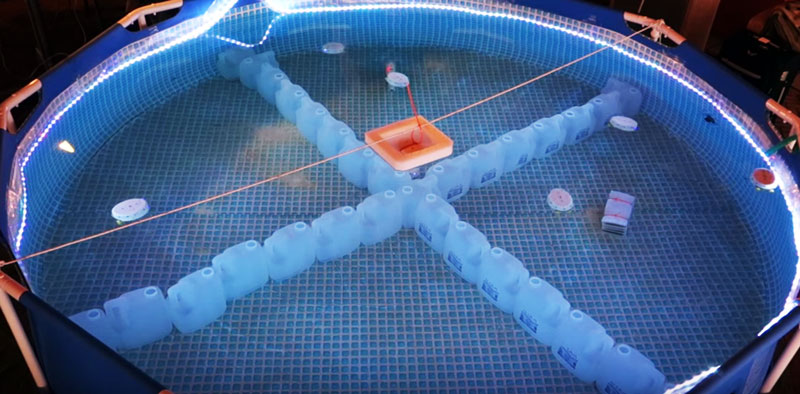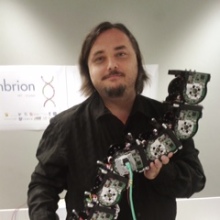
Robohub.org
The Year of CoCoRo Video #36/52: Relay swarm
 The EU-funded Collective Cognitive Robotics (CoCoRo) project has built a swarm of 41 autonomous underwater vehicles (AVs) that show collective cognition. Throughout 2015 – The Year of CoCoRo – we’ll be uploading a new weekly video detailing the latest stage in its development. Over the last four posts we demonstrated how the robots use a relay chain to communicate between the sea ground and the surface station. The following two videos show an alternative to this communication principle. The “relay swarm” scenario uses a swarm of Lily robots performing random walks in 3D for transmitting information about the status of the search swarm of Jeff robots on the ground.
The EU-funded Collective Cognitive Robotics (CoCoRo) project has built a swarm of 41 autonomous underwater vehicles (AVs) that show collective cognition. Throughout 2015 – The Year of CoCoRo – we’ll be uploading a new weekly video detailing the latest stage in its development. Over the last four posts we demonstrated how the robots use a relay chain to communicate between the sea ground and the surface station. The following two videos show an alternative to this communication principle. The “relay swarm” scenario uses a swarm of Lily robots performing random walks in 3D for transmitting information about the status of the search swarm of Jeff robots on the ground.
This first video explains the scenario in a computer animation:
The second video shows the real-world experiments performed in the “relay swarm” scenario. First Jeff robots search the ground of a fragmented habitat for a magnetic target. As soon as it finds the target it signals this locally with blue-light LEDs. Lily robots that also roam the habitat can pick up the signal from this Jeff robot. The info can also spread from Lily robot to Lily robot as they meet, spreading like an infectious process. Finally, Lily robots inform the surface station that the Jeff robot on the ground has found an interesting target. Future extensions foresee that after informing the surface station another phase starts: a second signal spreads from the surface station through the Lily robots back to the Jeff robot on the ground, and ultimately makes the Jeff robot to go up to the surface above the found target.
tags: AUV, CoCoRo, EU, UAV, underwater, video





